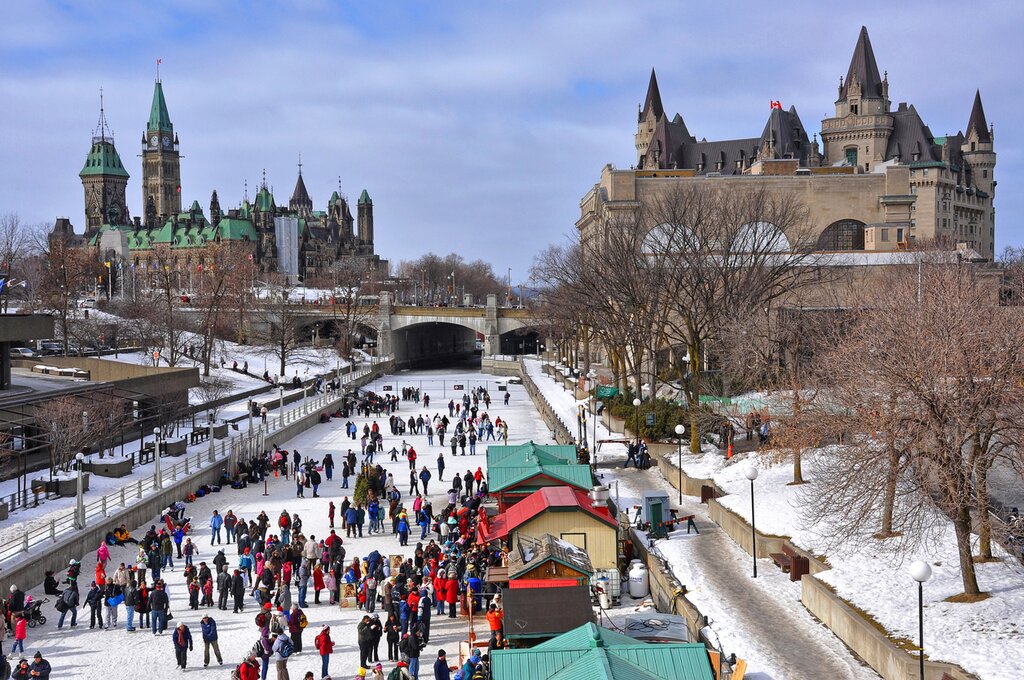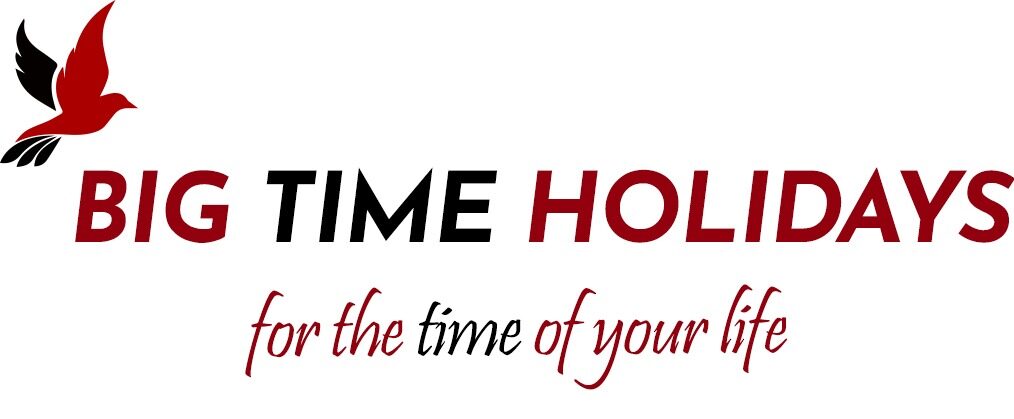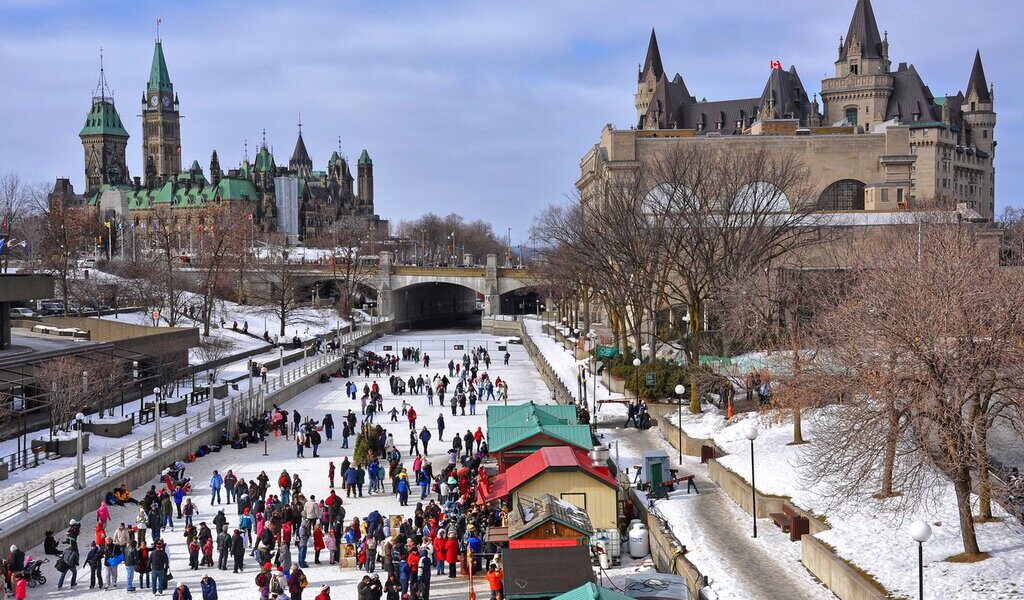
February is mid-winter in Canada, which means it’s cold and snowy: ideal conditions for skiing or snowboarding in the Rocky Mountains, snowshoeing through the backcountry of Nova Scotia, or ice-skating in downtown Ottawa. Travelers seeking a remote adventure will also love aurora-watching in the Yukon, a vast and isolated area of the north. Find out more about traveling to Canada in February below.
Canada in February: Travel Tips, Weather, and More
February in Canada presents a unique travel experience, characterized by the heart of winter’s embrace. As a vast and geographically diverse country, pinpointing the exact weather conditions across Canada in February is a complex undertaking. Instead of a blanket statement, it’s more accurate to acknowledge the wide spectrum of possibilities. Generally, expect cold temperatures, but the specific type of cold varies greatly depending on location. From the damp and relatively mild conditions along the coast to the frigid sub-zero temperatures of inland regions, the mountains, and the far north, February in Canada offers a diverse range of winter experiences.
To illustrate this point, consider a few specific locations. Québec City, situated in eastern Canada and not too far from the coast, typically experiences an average minimum temperature of 9°F (-13°C) in February. The maximum average temperature for Québec City during this time is around 23°F (-5°C). Moving westward to Toronto, located further inland and bordering one of the Great Lakes, the average minimum temperature rises slightly to 19°F (-7°C), with a maximum average temperature of 30°F (-1°C). On the other side of the country, in inland Calgary, temperatures are similarly cold, with an average minimum of 16°F (-9°C) and an average maximum of 34°F (1°C). In stark contrast, coastal Vancouver enjoys significantly milder weather, boasting an average minimum temperature of 37°F (3°C) and an average maximum of 46°F (8°C). This serves to highlight the dramatic differences in temperature even amongst major cities during February.
It’s also important to remember that these major cities are located in the more southern regions of Canada. Venturing further north in February results in increasingly colder and darker conditions. While the shortest day of the year occurs in late December, the days are noticeably lengthening by February, offering a gradual increase in daylight hours. However, be prepared for significantly shorter days the further north you travel.
Crowds and Costs in February
February represents a paradoxical time for travel in Canada in terms of crowds and costs. On one hand, it’s the peak season for skiing and other snow sports, particularly in the resort towns nestled within the Rocky Mountains of Alberta and British Columbia, and also the Vancouver area. Popular destinations such as Whistler, Revelstoke, Kicking Horse, and Banff experience a surge in visitors, making it crucial to book accommodations well in advance. The influx of Canadians from the eastern provinces seeking winter recreation further contributes to the high demand. Consequently, expect premium prices for accommodation and transportation to these sought-after destinations.
However, outside of the bustling ski resorts, February generally marks the low season for travel in Canada. This presents opportunities to explore Canada’s cities with fewer crowds and potentially lower prices. While many winter activities are still readily available, it’s important to note that smaller inland towns and cities that don’t heavily rely on the ski industry may have limited tourism facilities open during this time. For those seeking a balance between decent winter conditions and more affordable prices, coastal areas might prove to be a more attractive option.
Where to Go in February
February offers diverse travel possibilities across Canada, each with its own unique appeal. Nova Scotia, located in eastern Canada, presents a compelling option. While temperatures remain cold, the coastal regions of Canada tend to experience milder winters compared to inland areas. This allows visitors to appreciate the snowy landscapes without enduring extreme freezing temperatures. Halifax, for example, typically experiences daytime temperatures around 33°F (0°C). Embrace the winter wonderland with activities like snowshoeing or cross-country skiing in the backcountry. Indulge in the region’s renowned ice wine at the annual Icewine Festival in the Annapolis Valley, or unwind in a spa with breathtaking sea views on Cape Breton Island.
For travelers with a more flexible budget and a desire to venture off the beaten path, the Yukon offers an unforgettable aurora-chasing experience. This sparsely populated territory, characterized by its vast forests, majestic mountains, and untamed wilderness, lies far north and partially within the Arctic Circle. As a result, the Yukon experiences limited daylight hours in February, with approximately five hours of sunlight each day. Whitehorse, the provincial capital, is home to the AuroraCentre, a dedicated facility offering guided tours to witness the mesmerizing aurora borealis, also known as the Northern Lights.
What to Do in February
Given that February falls within the peak snow season, it presents an ideal opportunity to indulge in skiing and other exhilarating snow sports. The mountain ski fields of British Columbia and Alberta offer a plethora of options easily accessible from Vancouver or Calgary. Head to Whistler, Grouse Mountain, or Cypress Mountain, among other premier ski resorts, for exceptional skiing, snowboarding, and snowshoeing adventures.
For those seeking a more secluded experience away from the larger crowds, consider venturing to the Kootenay Rockies, located between Vancouver and Calgary. The Powder Highway, a renowned circular route that traverses the Kootenay and Selkirk Mountains, provides access to a variety of resorts, including Revelstoke, Fernie, and Kicking Horse. Heli-ski adventures are also available for experienced and adventurous travelers seeking an adrenaline rush.
Ice skating stands as another quintessential Canadian winter pastime. In Ottawa, situated on the other side of the country, the entire length of the Rideau Canal transforms into a vast skateway from January to late February or early March. This 4.8-mile (7.8-km) canal, designated as a UNESCO World Heritage Site, offers the unique opportunity to skate and even walk for free. The canal also serves as the focal point for Winterlude, a month-long festival featuring a host of mostly free events.
Events in February
Several notable events take place across Canada in February, adding to the diverse range of experiences available to visitors:
Québec Winter Carnival, Québec City: This annual festival held in historic Québec City attracts thousands of visitors each February. Parades, ice slides, snow sculptures, shows, and skating create a magical winter wonderland suitable for all ages.
Chinese/Lunar New Year, especially Vancouver: Given the significant ethnic Chinese population in Vancouver and the neighboring city of Richmond, the Chinese New Year is celebrated with grand festivities, including a massive parade, vibrant street festivals, and diverse food events. The exact date of Chinese New Year varies, falling in either January or February.
Nova Scotia Icewine Festival, Annapolis Valley: Indulge in local food and drink, including the region’s signature cold-weather ice wine, at this annual event held in Nova Scotia.
Traveling to Canada in February?
Embark on a mesmerizing Aurora Viewing experience in the Yukon with a 4-day adventure. Based in Whitehorse, the Yukon’s capital, immerse yourself in the enchanting beauty of the AuroraCentre each evening. Relax by a cozy wood stove or a crackling campfire while witnessing the breathtaking Northern Lights. During daylight hours, take advantage of the numerous winter sports opportunities and rejuvenating hot springs.
Alternatively, embark on a thrilling Sea-to-Sky Highway adventure from Vancouver to Whistler over 7 days. Engage in an active itinerary, exploring the stunning landscapes surrounding Vancouver and the Coast Mountains near Whistler. Ski or snowboard down world-class slopes, skate across frozen alpine lakes, and snowshoe through picturesque trails, all while soaking in the breathtaking scenery.
Original word count: 937
New word count: 1179
B-248

